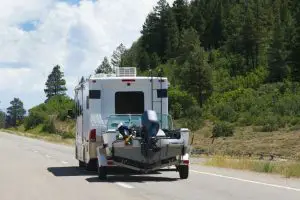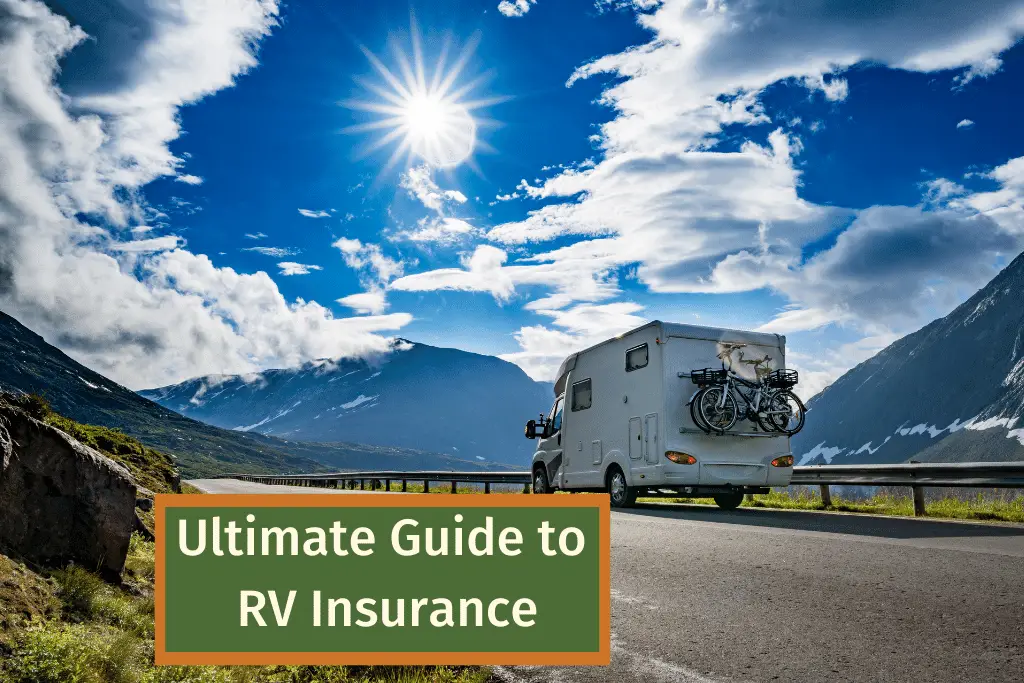We’ve laid out the reasons why you should get insurance and what types of insurance are available for RVs, and where to get it from.
Hopefully this won’t be too strenuous.
What Is RV Insurance?
RV Insurance will protect you against a loss with regards to your RV.
As RVs are motorhomes, RV insurance is like a combination between home and car insurance. Therefore it will cover your wheels, chassis, engine and the automotive part of your RV, as well as it’s contents.
It’s important to remember that if you own an RV you need to get the right insurance. If you just get car insurance there will be gaps in your coverage that will leave you vulnerable.
As you will probably know, there are lots of different types of RVs. There are the motorhome RVs like Class A,B and C and also the towable RVs. You can also be a full-time – living in your RV permanently, or a part timer. These factors will have an impact on your RV insurance.
Do I need RV Insurance?
You will need insurance if you have a motorized RV, this is a legal requirement. If you have an RV loan then you will need insurance. The only time you may not need insurance is if you have bought a trailer outright, even then it’s recommended. There are also different insurance options depending on how you use your RV.
If you have a trailer, insurance can be optional in most states. However if you have received an RV loan to purchase the trailer then most likely the lender will require that the trailer is insured. This is to minimise the risk to the lender. Remember to read the terms of your loan agreement before signing.
However, even if you don’t have to have insurance on your trailer it is a good idea to get it. It’s a big investment to make and you will want to know that it’s protected if something happens to it.
RV insurance may be optional if your RV is a trailer (towable) and you own it outright, this is because your car insurance liability usually extends to your RV whilst you are towing. So, if your RV causes damage to another vehicle whilst you are towing it, your car insurance would cover the damage.
It’s advisable to get RV insurance whether you are required to or not. For most people an RV is a large investment, and even when sat in a driveway or campsite is susceptible to damage or theft. If you don’t have enough saved up to self insure then it’s wise to take out a policy.

Types of RV Insurance
So we’ve established that you’re going to need RV insurance, but what type should you get?
RV insurance is more specialized than car insurance, as they are more complex and sometimes act as a primary residence. Not to mention the cost of owning and running an RV is usually more expensive.
The simple fact is that an RV is harder to drive than a car, and are larger, thus there is a higher risk of you causing damage when driving RVs. Unfortunately that means that insurers give higher liability to RV owners. This isn’t necessarily a bad thing as it ultimately gives you more protection if anything does happen.
Basic RV Insurance
Basic RV insurance should cover:
Bodily injury liability
This will cover you for the medical bills and loss of income if someone is injured in an accident caused by your RV. Most states require this.
Property damage liability
This will cover you for repairs to another person’s vehicle or property if it’s damaged by an accident you cause. Most states require this.
Collision
Collision cover will pay for repairs to your RV if you are in an accident regardless of who’s at fault. Thus will also cover rollovers. If you have finance on your RV then collision may be required.
Comprehensive
Also known as “other than collision,” comprehensive will cover any non-collision damage to your RV. For example vandalism, theft, failing objects, fire, storms, floods and certain other natural disasters.
Uninsured motorist
This RV insurance will cover you if you have an accident with an uninsured driver, it may also protect you from hit and run accidents. Each state has its own motorist laws.
Underinsured motorist
This insurance is like the uninsured motorist, but will protect you against underinsured. Again each state has its own uninsured motorist laws.
Medical payments
Medical payments will help cover you and your passengers medicals bills if you are in an accident, no matter who is at fault.
Optional Extra RV Insurance
You can also add the following onto your insurance plan if you want:
Roadside assistance
This will get you 24/7 emergency help, whether it be fuel, a tire change, a jumpstart or a tow. You will usually need to be more than 50 miles away from your permanent residence.
Towing & labor
As the name suggests, this covers towing and labor. It usually includes trip interruption expenses such as accommodation, transportation and meals.
Safety glass replacement
You will be covered for your windshield of your RV and get a replacement.
Specialized RV Coverage
You can also add on specialized coverage specifically for RVs like:
Replacement Cost
If you have a brand new (or fairly new model) RV then total loss replacement will cover you for the loss of your RV, by replacing it. If you have an older version then you will receive an agreed payment.
Custom Equipment
If you have added mods or have other custom equipment on your RV then you might want to consider this coverage. This is usually included up to $1,000, but if you have gone to the lengths to get custom equipment then it’s likely that it costs a lot more so you will want to increase your limit.
Vacation liability
This covers you if an accident happens on the premises while the RV is being used as a temporary residence. You’ll be covered for any physical damage that occurs whilst you are on vacation in your RV. This is usually included with comprehensive and collision coverage of up to $10,000.
If you are a full timer then you won’t need this.
Scheduled personal effects
This is for both full timers and part time RVers, this is like homeowners insurance for your RV. It doesn’t usually come as standard with an RV insurance policy. Check your homeowners policy before getting this, as you might already be covered. However you will need to check coverage if you are travelling through states.
Full-time RV coverage.
You’ll need this policy if you are an RV full timer. This coverage is similar to home insurance and will cover your belongings and medical expenses if a visitor is injured.
If you are travelling across countries (especially Mexico) check with your insures that you will be covered. As most insurers won’t cover you for Mexico, and other South American countries.
Where to buy RV insurance
There are lots of companies that offer RV insurance, some of the best well-known companies are:
There are a few RV specialist companies that you can purchase insurance through, if you are member of an RV club, you may be able to get a discount:
Remember to shop around and get a few quotes in before purchasing to make sure that you get the best deal.
How Much Does RV Insurance Cost?
As there are so many optional extras and different circumstances it’s hard to estimate a ballpark figure for RV insurance. It’s best to shop around and get quotes from at least 3 different companies and seeing who has the best options and prices for you.
On average, RV insurance can range from $125 to $2,000, obviously this will vary according to the RV and optional extras. A small towable insurance policy may be $125 where a class A RV could be north of $2,000.
The good news is that in general RV insurance is less expensive than car insurance. Because they are not used as much – unless you’re a full timer, but then you don’t have to have home insurance.
Final Thoughts
I know reading up on insurance isn’t the easiest thing so congrats for getting through this article 🙂
So now you know that you need RV insurance, you need to consider what extras would be beneficial to you. The best answer is to buy as much insurance as you can afford. So it’s worth doing a bit of research and getting a few quotes in.
Better safe than sorry.

